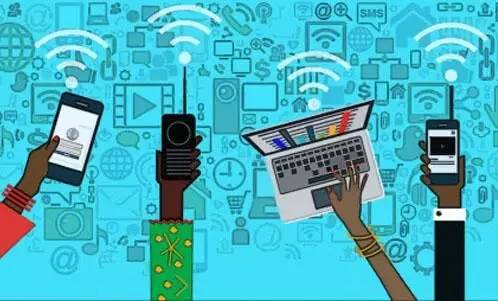
Two-thirds of the world's school-age children do not have access to the internet
text_fieldsTwo-thirds of the world's school-age children do not have access to internet connection, says a new report from UNICEF and International Telecommunication Union (ITU).
Access to the internet has become a necessity to all school, college and university going students in this Covid-19 pandemic when offline classes have been restricted considering the safety of students. In such a scenario where everyone is relying on virtual classes, lack of access to the internet could cost children their future.
The UN report stated that an estimated 13 billion students aged between three and seventeen and about 63 per cent of all 15-24 year-olds do not have internet connection in their homes.
"Lack of connectivity doesn't just limit children and young people's ability to connect online. It prevents them from competing in the modern economy. It isolates them from the world. And in the event of school closures, such as those currently experienced by millions due to COVID-19, it causes them to lose out on education" said Henrietta Fore, the UNICEF Executive Director.
The digital divide has always been an issue as it prevents certain groups of people from having access to the internet due to economic, linguistic and even generational reasons. This divide is however more felt in the developing countries and rural areas.
UNICEF and ITU in 2019 had launched a global initiative called Giga with the aim of connecting every school and its nearby communities to the internet in order to empower every young person. The key to addressing the learning crisis and to ensure equal access to education in these modern times is to achieve universal internet connection.
Even after universal internet connection is achieved, there are various other problems to tackle like low digital skills, lack of sufficient devices, online safety, affordability and lack of proper knowledge as to how to spot opportunities online.






















